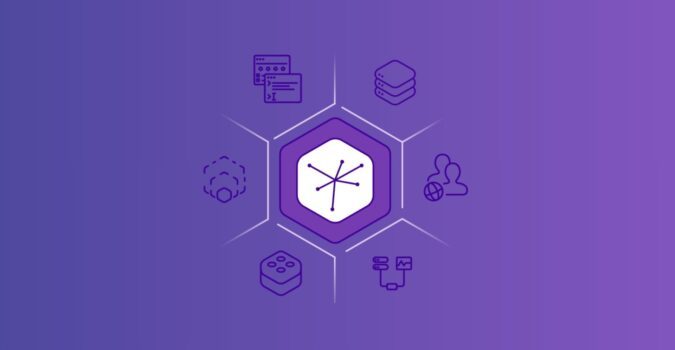Architecting Intelligence: Why Frameworks Matter for AI Agents
Behind every successful AI agent is a powerful framework. As businesses look to build AI agents that can act autonomously, reason in real-time, and collaborate across systems, the choice of an AI agent framework becomes a strategic decision.
AI agents are only as capable as the architecture behind them. Choosing the right framework determines how effectively an agent can perform reasoning, take actions, and operate across integrated systems. In a rapidly evolving market, this decision isn’t just technical; it’s foundational to competitive advantage.
In this article, we’ll break down the top AI agent frameworks fueling agentic AI innovation, what makes each unique, and how to choose the best fit for your enterprise.
What Are AI Agent Frameworks?
AI agent frameworks are software ecosystems designed to build, train, and manage autonomous agents. These agents go beyond simple scripts or chatbots; they interpret goals, make decisions, and take actions in complex, dynamic environments.
Frameworks serve as the brain and nervous system of an AI agent. They provide the core functions that make agents capable of acting independently, adjusting behavior based on context, and pursuing outcomes aligned with business goals. Without a robust framework, it’s impossible to scale beyond simple automation.
Why the Framework Matters When You Build AI Agents
Choosing the right framework influences everything from speed-to-deployment to how well your agents handle multi-step reasoning. A strong framework helps:
- Integrate with tools, Application Programming Interfaces (APIs), and enterprise systems
- Manage agent memory, context, and data flow
- Enable collaboration among agents and with humans
- Support reusable agent behaviors across use cases
A well-matched framework enhances flexibility, reduces technical debt, and accelerates time to value. More importantly, it lays the groundwork for scalable intelligence across departments and workflows.
Core Capabilities of Modern Agentic Frameworks
Today’s agentic AI frameworks aren’t just about task automation; they’re foundational for enabling intelligent decision-making, adaptive workflows, and scalable autonomy. These core capabilities form the backbone of how enterprise-ready AI agents function and deliver value:
Memory and Context Tracking
Frameworks must enable AI agents to remember task progress, contextual cues, and user history. This memory allows for personalized, coherent interactions over time.
By storing context in vector databases or persistent memory, agents can make smarter decisions and ensure continuity across long or multi-session workflows.
Tool Use and Orchestration
Modern frameworks empower agents to dynamically interact with APIs, databases, and third-party tools to complete tasks. This extends their autonomy beyond language generation.
With tool orchestration, agents can string together processes–retrieving data, generating responses, updating systems–without requiring manual oversight.
Multi-Agent Collaboration
The most powerful frameworks enable networks of agents to collaborate and delegate work like digital teams. Each agent can play a distinct role while coordinating through shared memory and communication protocols.
This approach enables faster task completion, modular responsibility, and more resilient agent architectures.
Reflection and Self-Correction
Reflection tools allow agents to analyze their behavior and revise their outputs when they go off-course. This can include scoring task outcomes or comparing responses to expected results.
By learning from mistakes and successes, agents become more reliable over time and reduce the risk of hallucinations or ineffective actions.
LLM Orchestration
Because most AI agents are powered by large language models, frameworks must manage how they use LLMs, especially when it comes to task prompting, response handling, and memory management.
This includes dynamically adjusting prompts, routing inputs to specialized agents, and optimizing token usage to improve performance and reduce costs.
Top AI Agent Frameworks in 2025
The AI agent ecosystem has rapidly expanded, giving developers and enterprises a diverse set of frameworks to choose from, each designed for different types of use cases, levels of complexity, and development philosophies. Here are the top AI agent frameworks empowering developers and enterprises today:
LangChain
One of the most widely adopted frameworks, LangChain enables memory, tool use, and chaining logic. It’s developer-friendly and highly modular.
LangChain excels at orchestrating LLM-driven workflows, making it ideal for building context-aware agents with composable chains and integrations.
AutoGen (by Microsoft)
AutoGen supports collaborative multi-agent systems where agents can communicate and reason together. It’s ideal for goal-based, multi-turn interactions.
With built-in support for conversational memory and coordination, AutoGen is particularly suited for internal use cases that require inter-agent dialogue.
React (Reason + Act)
This pattern enables agents to think step-by-step and take intermediate actions. Often implemented in combination with LangChain or custom wrappers.
React is foundational for agents that must reason and validate before acting, ideal for high-stakes decisions.
CrewAI
CrewAI brings a role-based model to multi-agent coordination. Each agent plays a distinct role, like researcher, planner, or executor, mirroring real-world team structures.
This structure increases accountability within agent interactions and makes debugging easier.
MetaGPT
Inspired by software engineering teams, MetaGPT creates structured multi-agent pipelines to complete software tasks, from requirements gathering to final code delivery.
Great for code generation and structured outputs, MetaGPT enables teams to deploy “engineering crews” to solve defined problems.
How These Frameworks Compare
When choosing between AI agent frameworks, it’s not about picking the most powerful option—it’s about aligning capabilities with your specific use case and level of enterprise maturity. Are you building a standalone assistant or a multi-agent enterprise system? Do you need deep LLM orchestration, or is tool integration more critical? The answers will guide you toward the right fit.
This comparison table outlines the strengths, best use cases, and potential trade-offs of today’s leading frameworks:
| Framework | Best For | Strengths | Limitations |
| LangChain | General purpose | Modularity, tool integration | Steeper learning curve |
| AutoGen | Collaborative workflows | Multi-agent support, chat memory | Microsoft ecosystem dependency |
| ReAct | Reasoning + Planning | Stepwise logic, intermediate actions | Requires custom implementation |
| CrewAI | Role-based task execution | Clear agent roles, extensibility | Less mature community |
| MetaGPT | Code generation workflows | Software-centric, structured output | Niche use cases |
Choosing the Right AI Agent Platform
Selecting the right AI agent platform is just as important as choosing the framework, as it’s what brings your AI agents into the real world. While frameworks power the intelligence, platforms enable deployment, governance, and scalability.
If you’re aiming to build and scale AI agents across departments, look for an enterprise-grade platform that supports integration, observability, and secure operations. Platforms like Salesforce Agentforce offer out-of-the-box connectors to CRMs and business logic, plus built-in audit trails, role-based controls, and intuitive dashboards making them ideal for teams without deep AI expertise.
As you evaluate options, consider these core capabilities:
- Seamless integration with CRMs, Enterprise Resource Planning (ERP) systems, APIs, and proprietary tools
- Security and compliance, including audit logs and access controls
- Scalable architecture that supports multi-tenant growth
- User-friendly interface for non-technical teams to monitor and manage agents
- Strong support and documentation to streamline onboarding and troubleshooting
Whether you prioritize speed of deployment or customizability, your platform should align with your team’s technical skill set, existing infrastructure, and growth goals. A well-matched platform removes friction, letting you move from prototype to production confidently.
Best Practices for Evaluating and Scaling AI Agent Frameworks
Beyond choosing the right framework, it’s important to think holistically about how to evaluate, operationalize, and evolve your AI agent strategy. Here are some practical best practices specific to working with frameworks:
- Map Capabilities to Business Needs: Ensure the framework aligns with your agents’ reasoning requirements, tool integrations, and performance goals.
- Evaluate Extensibility: Consider how easily the framework supports new use cases, multi-agent patterns, LLM upgrades, and long-term system evolution.
- Test Agent Coordination Logic: If your use case involves multiple agents, stress-test their ability to delegate, share memory, and recover from breakdowns.
- Build Observability from the Start: Use frameworks that expose decision trees, agent memory, and LLM prompts to aid in debugging and compliance.
- Establish a Governance Model: Choose frameworks and platforms that support access control, audit logs, human override, and flexible oversight for safety and trust.
This strategic lens helps ensure your agentic AI implementation scales responsibly and delivers measurable ROI.
How Frameworks Shape the Future of Agentic AI
Frameworks are doing more than powering automation–they’re shaping how enterprises fundamentally work.
As businesses seek new ways to adapt, scale, and compete, frameworks that support autonomous reasoning, dynamic orchestration, and human-agent collaboration are rising to the forefront.
Consider the financial services sector: firms are deploying AI agents built on frameworks like LangChain and AutoGen to handle multi-step onboarding processes, fraud detection, and client communications, without human intervention. These implementations are driving cost reductions and opening up new channels for value creation.
As these use cases expand, we’re seeing a trend toward composable architectures, where AI agents become reusable building blocks integrated across departments. This signals a move away from siloed automation and toward unified, intelligent operations.
These platforms aren’t just technical tools; they’re enablers of digital transformation. A study by PricewaterhouseCoopers (PwC) cites that by 2035, AI is expected to improve a business’s productivity by 40%. The study also says that 44% of business leaders say their team’s productivity has increased as a result of AI implementation. The organizations that recognize this shift early will lead the way in reimagining workflows, customer experience, and innovation through AI agents.
Bringing It All Together: Choosing the Right Framework
AI agent frameworks are no longer experimental—they’re foundational to next-gen enterprise software.
The frameworks powering modern AI agents are giving businesses the ability to move faster, think smarter, and operate more autonomously. Choosing the right one requires not just technical evaluation, but alignment with your business goals and operational strategy.
Whether you’re building a customer-facing agent or deploying an internal automation layer, your tech stack determines what’s possible.
Looking to take the next step? At LaunchPad Lab, we’ve helped teams across industries turn their ideas into intelligent, operational AI agents—and I’d love to help you do the same. Let’s build smarter together.



